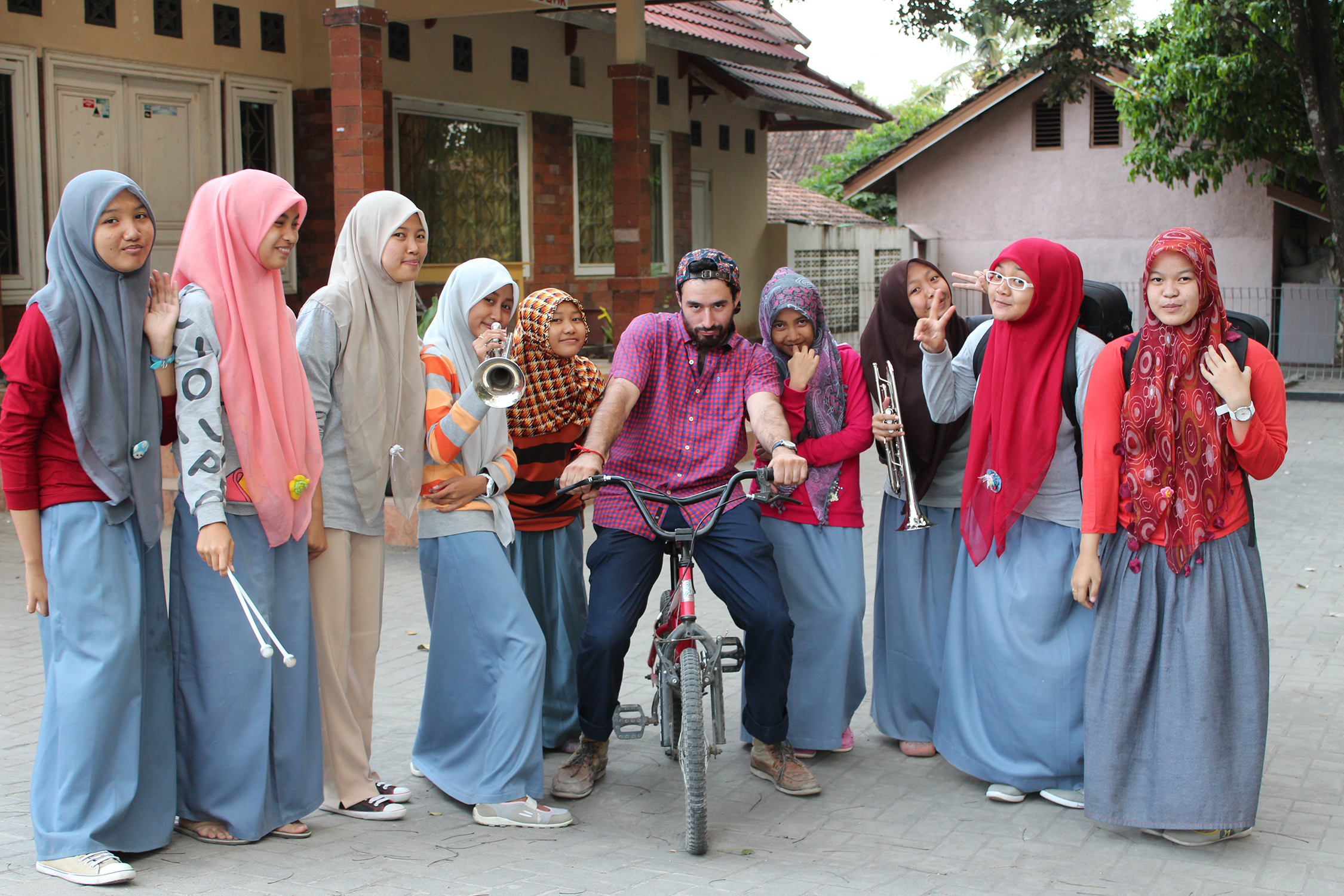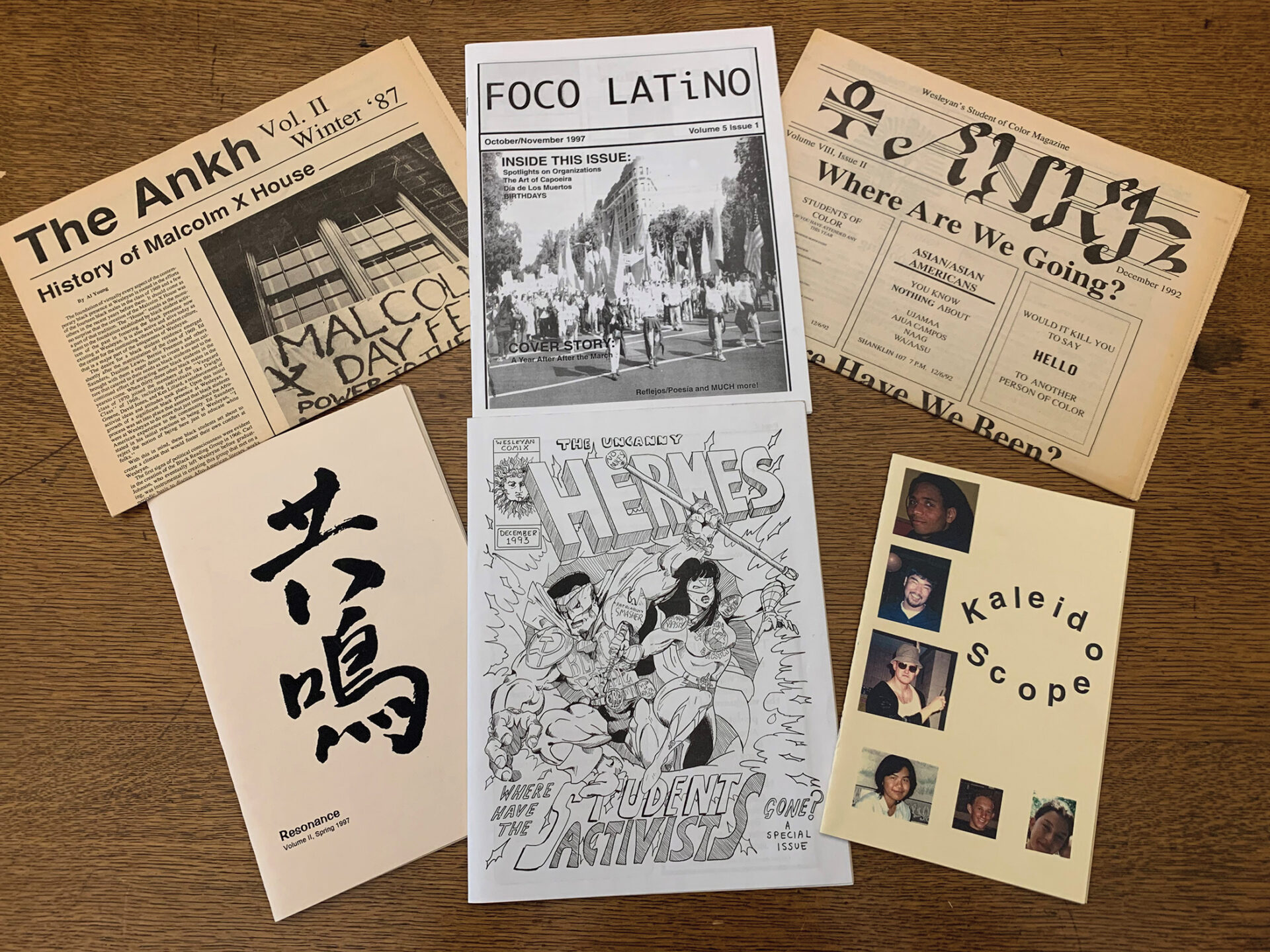PUBLISHING HOLOCAUST MEMOIR NIGHT FOR MUSLIM STUDENTS

It doesn’t seem an obvious choice, publishing one of the most important memoirs to come out of the Holocaust into the language of a country that is home to the world’s largest Muslim population—but that’s exactly the project Max Bevilacqua ’12 and Mansoor Alam ’15 have taken on.
The project is the brainchild of Bevilacqua, who grew up in a Jewish household and studied Christianity as a religion major at Wesleyan. As a Fulbright scholar, he requested placement in Indonesia, which is 88 percent Muslim, and where he taught English. State Department officials—as well as family and friends—encouraged Bevilacqua not to reveal his religious identity, since Judaism is not sanctioned there.
“I struggled with that,” he said. “But I wanted to be ‘Max, the American who is our teacher.’ I didn’t want my religion to be a distraction.”
Still, the secret weighed on him. Ten days before his year was complete, he gathered his friends. “You should know that I’m Jewish,” he said.
His announcement was met with some confusion—why hadn’t he told them? It was a time to acknowledge his own fears and biases—and the best way seemed to be with a book: Night, by Elie Wiesel. This memoir recounts Wiesel’s horrific experiences as a young boy in the German concentration camps during World War II.
“The book provided an epiphany of the trauma that has been associated with being Jewish,” Bevilacqua said.
Back in the United States, Bevilacqua continued pondering the bridge he’d found. What would it take to share this powerful book with a country that had never had it available to them?
He remembered that he already knew a publisher: Mansoor Alam ’15. The two had met as undergrads. Alam describes Bevilacqua as “very personable—you can sit down and really talk with him.” Bevilacqua calls Alam “humble and brilliant; a true Renaissance man.”
Alam had started his own publishing company as a first-year student at Wesleyan. “There are so many good writers and great content that doesn’t make it to readers; I wanted to figure out a way to give authors autonomy and make it cost effective,” he explained. He provides his clients with assistance in copyediting, graphics, and marketing.
“When Max talked to me about the project, I knew we absolutely had to do this,” Alam said. “The challenge of it—the ‘what’—was thrilling to me, and Max was so passionate about the ‘why’ of it.”
The “what” began with obtaining rights from the French publishing company, in a series of carefully crafted letters written in French. Next, they lined up a cohort of French/Indonesian translators.
The process is intensive. “It’s such a visceral, personal book,” Bevilacqua said.
“Max was worried about losing the impact of those details,” Alam said. “To make sure that didn’t happen, we relied on a network. Translators compared their work—how they rendered this word, that phrase.”
With the translation nearly completed, Bevilacqua is focused on coordinating classrooms in America and in Indonesia which will read Night together. “It’s a book that can bridge cultures,” he said. “When we think about the Muslim world, let’s also look to developing friendships in Indonesia.”
To follow their progress, see growingoodfaith.org/.

